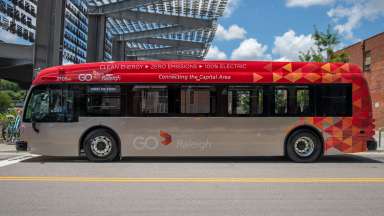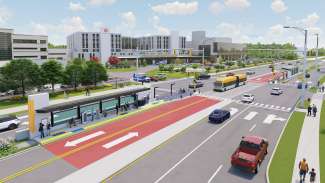Ways We are Making Our Buses More Environmentally Friendly
In November 2023, the City broke ground on the first corridor of its planned bus rapid transit (BRT) system that will allow residents to get to and from Downtown Raleigh quicker than they could driving a car or riding a regular bus. Buses will have their own lanes and are scheduled to arrive at stops every 10 minutes during peak hours. The project also includes a new multiuse path from downtown to WakeMed, making walking, biking, and scootering easier and safer. Learn more about BRT.
It takes years to plan and source buses, so the City started our transition to renewable natural gas buses as part of the innovative Bioenergy Recovery Project. This renewable gas is created from our community’s wastewater! What you flush down the toilet will be able to power more than 70 buses, including the buses that will be used for the growing BRT. The project is scheduled to be complete mid-2024.
These efforts are part of Raleigh’s Community Climate Action Plan, which works toward the City’s goal of reducing greenhouse gas emissions by 80 percent and is one of the first climate plans in the U.S. to center equity in climate action. Let’s listen to Levi and look for ways to all contribute to these goals!

